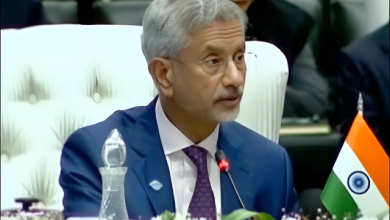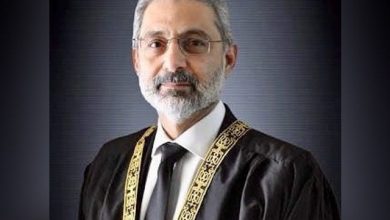PHC proposes legislation for stipulating mandate of intelligence agencies
PESHAWAR: A full court meeting of Peshawar High Court has proposed enactment of laws by federal government for stipulating the respective mandate of intelligence agencies so as to protect judges of superior courts from harassment and intimidation.
Like rest of the high courts, PHC has submitted a five-page report to Supreme Court of Pakistan in the ongoing suo moto case about meddling by intelligence agencies in judicial affairs.
The report, including opinions and proposals, was prepared after the matter was discussed in the full-court meeting chaired by chief justice on April 22. A six-member Supreme Court bench heard the case on April 30 and will conduct further proceedings on May 7.
PHC has referred to the famous judgment of Supreme Court in suo motu case No.7 of 2017, commonly known as ‘Faizabad Dharna case’ and quoted different directives issued by the apex court in it.
Full court meeting suggests measures in its five-page reply to SC in suo motu case
“The directions of apex court in suo moto case No.7 of 2017 should be implemented in letter and spirit and federal government should be asked to legislate/enact laws clearly stipulating the respective mandate of intelligence agencies, more particularly to make any such activity or adventure of intelligence agency interfering in the working of judiciary punishable under the penal laws of the state,” PHC proposed.
It also recommended amending or framing comprehensive rules by high court envisaging that a judge of the high court or subordinate judiciary, if received any threat, intimidation or temptation or interference from executive or any member of any organ of the executive or non-state actor, should immediately inform the chief justice of high court through a written complaint mentioning therein the facts and details and the nature of threats, intimidation, temptation or interference in any matter, which was pending before him.
It added that copy of the complaint should be sent to Supreme Judicial Council, all members of administrative committee and registrar of high court.
“The role of chief justice and members of the administration committee relating to disposal of any complaint received from a sitting judge of a high court or the member of subordinate judiciary relating to receipt of any threat, intimidation, temptation or interference from any executive organ of state or non-state actor, shall be regulated by rules/orders, inter-alia providing a mechanism proactively initiating all steps which are necessary for alleviating/ curbing the said threat through all possible means on administrative sides,” PHC recommended.
It further provides: “If the administrative committee reaches at the conclusion that due to lack of cooperation of any executive organ of state, the said threat to a judge still continues, then the matter shall be taken on judicial side by constitution of larger bench for passing appropriate orders, initiating contempt of court proceedings against the delinquent officials of state or any member of any organ of state including members of intelligence agencies, who are involved in such threats/intimidation.”
PHC has also proposed making certain additions in Article IV of Code of Conduct for judges of superior courts for making it mandatory on a judge of high court to immediately inform the chief justice of high court, through a written complaint, about receiving any threat and intimidation, etc.
While referring to different notification of high court related to its administration committee, PHC noted that there was no notification for a mechanism envisaging for proactive response to illegal interference by any executive organ of state in the judicial working of a judge.
The report also quoted different directions given by apex court in ‘Faizabad Dharna case’ including: “To best ensure transparency and the rule of law it would be appropriate to enact laws, which clearly stipulate the respective mandates of the intelligence agencies.”
The report pointed out had the directions issued by apex court in the said judgment followed by the executive/parliament and the role of the intelligence agencies, more particularly its interference in politics, media and judiciary, was prohibited through the Act of parliament, the present spiraling atmosphere would have never arisen.
“Interference in politics, functioning of parliament and judicial working of superior judiciary by executive organs of state is an open secret. Some of the participants/judges have expressed and shared the trauma, which they underwent due to interference by the intelligence agencies when some political cases came up for hearing before the bench, which was presided over by them,” PHC admitted in its response.
It further states: “They have also complained about direct approach to them by members of intelligence agencies seeking favour in decision of political cases. However, when the matters were decided impartially, they received life threats through non-state actors from the neighbouring country, Afghanistan.”
“The matter was also discussed with Counter-Terrorism Department (CTD) but with no progress. Similarly, this fact was also brought into the notice of all concerned at the highest level,” it said.
Published in Dawn, May 2nd, 2024




